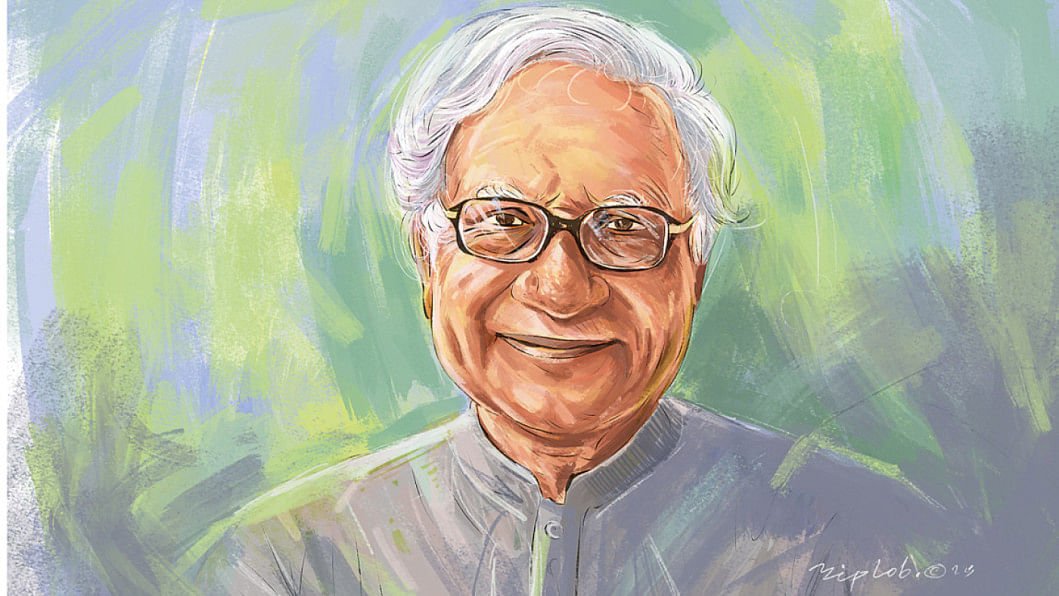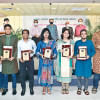The unmatched legacy of Professor Serajul Islam Choudhury

When the position of vice-chancellor falls vacant at a public university in Bangladesh, it is often followed by a flurry of lobbying among faculty members eager to secure the role. This jostling reaches a fever pitch when the vacancy is at Dhaka University, a post laden with prestige, access to administrative power, and, for some, a shortcut to wealth and influence.
Yet in this scramble, rare figures stand apart—those who resist the lure of power to preserve their principles. Professor Emeritus Serajul Islam Choudhury is one such figure. He famously declined the post of vice-chancellor at Dhaka University, choosing instead to remain independent, continue his scholarly work, and uphold the respect he had earned through decades of teaching and writing.
For years, concerns have been raised about university teachers drifting away from their central duty—teaching. Absenteeism and a lack of classroom commitment are frequently cited. But once again, Choudhury is the exception.
At the Department of English in Dhaka University, where he taught for decades, students seldom questioned his dedication. His commitment was perhaps most poignantly displayed on the day of his greatest personal loss, when he showed up to teach on the very morning his wife passed away.
In a 2017 tribute, one of his former students, Abu Jar M Akkas, now deputy editor at daily New Age, wrote: "One incident in his life caused a stir among us when we were his students. The day his wife, Najma Jesmin Choudhury, whom he married in 1962, died of cancer in 1989, he went to take the class scheduled for that morning; we mustered up the courage to send him back home."
Akkas had interviewed Choudhury a decade earlier, in 2007, and asked him why he had come to class that day. Choudhury replied: "Duty has always been important to me…I knew my wife was being treated and there were people around her to look after. I also needed to discharge my duty."
In recent decades, many academics and intellectuals in Bangladesh have aligned themselves with political factions, sometimes choosing silence over truth in the face of misrule from their preferred quarters. Choudhury, however, remained an unflinching voice of dissent and clarity.
He consistently spoke out against environmental degradation and cultural erosion, even when doing so drew lawsuits and hostility. He was a prominent voice in protests against the cutting of trees at Osmani Udyan in 1998, commercial construction at the Lalon Shah shrine compound in 2000, and the proposed airport project at Arial Beel in 2011, which threatened fertile agricultural land. A legal case related to the Arial Beel protest still remains pending.
In October 2022, yet another complaint was filed against him in a Chattogram court, accusing Choudhury and two others of defaming Bangabandhu Sheikh Mujibur Rahman in an article. The case stemmed from an essay titled Sheikh Mujiber Gopon Shatru ("The Hidden Enemy of Sheikh Mujib"), published by Chattogram Academy the previous year. Amid public backlash, the case was eventually withdrawn.
That unwavering sense of duty has defined his life, whether teaching in classrooms, writing with fierce clarity, or standing beside the oppressed in public struggles. He took part in movements and raised his voice against social injustice.
For any educator, true pride lies not in titles or awards, but in the legacy carried forward by their students. In this regard, Choudhury—affectionately known as SIC among his pupils—can rest assured that he has shaped generations of thinkers and doers.
Dr Azfar Hussain, professor of Interdisciplinary Studies and director of the Graduate Programme in Social Innovation at Grand Valley State University in Michigan, wrote on June 23: "A direct teacher of mine in the English Department at Dhaka University, Choudhury shaped my intellectual formation in more ways than I can count." "But beyond the personal, he continues to serve as a committed thinker and writer rooted in the people's struggles, offering a steady stream of critical interventions across literature, culture, history, and politics, all while persistently aligning himself with those cast to the margins—peasants, workers, women, indigenous communities, and the oppressed in all their forms," Azfar went on to say.
Professor Serajul Islam Choudhury, one of Bangladesh's most enduring public intellectuals, turned 90 on June 23. The occasion calls not just for celebration, but also for reflection, emulation, and a renewed commitment to upholding his legacy, at a time when so many voices have faded in the face of authority.
We salute not just a man of letters, but a man of conviction—whose classroom extended beyond the university gates into the broader struggles of a nation still seeking dignity and equity.
Happy 90th birthday, sir. May your light continue to guide us.
Mohiuddin Alamgir is a journalist at The Daily Star.
Views expressed in this article are the author's own.
Follow The Daily Star Opinion on Facebook for the latest opinions, commentaries and analyses by experts and professionals. To contribute your article or letter to The Daily Star Opinion, see our guidelines for submission.


 For all latest news, follow The Daily Star's Google News channel.
For all latest news, follow The Daily Star's Google News channel. 









Comments